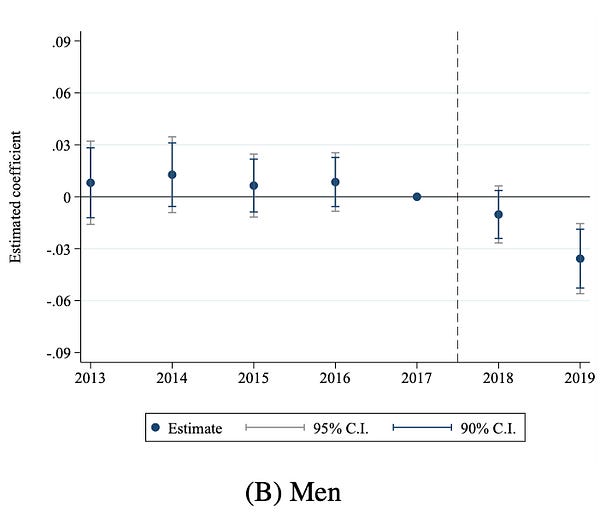Linkposting – Are you hanging up your stocking on your wall?
Happy Festivus; I hope your aluminium poles are looking metallic and uniform. Unfortunately, I was strongly advised not to publish a post airing my grievances with friends and regular readers, so instead here are a few more links before we enter the New Year.
The Great Condom Debate of 1991, Limerick, Ireland – No, non-Irish readers, that is not a typo or a joke: contraception was only legalised in any form in Ireland in 1980, and was still heavily restricted into the 1990s. You can read an academic article about the pressures that led to reform here, or a contemporary news report here; but this brilliant bit of found footage is way better, one of the best records of generational divides and rapidly changing social and religious attitudes that I’ve ever seen, for Ireland or for anywhere else.1
The secret lives of MI6’s top female spies – An absolutely stupidly good read. Here’s just one of many hooks they could have led with: decades of James Bond–style eroticised depictions of female spies have filtered through across the globe, and so contacts are very prone to thinking that the spy they are talking to is making sexual advances; in response, some female MI6 agents have to use the ‘you’re like a brother to me!’ line regularly, as an essential part of their job. I can almost picture a Russian informer desperately gazing upon his British handler, internally crying out: ‘But I’m all Milhouse!’
Boundary changes – a rare bit of good news for the Conservatives – Recommended for the especially fascinating section on the difference between diversity (on the one hand) and cultural integration (on the other), contrasting their relative effects in a British context. Here’s a fact that makes intuitive sense once it’s stated, but which is very hard to figure out on your own because so few people are naturally inclined to make the relevant distinctions: controlling for cultural assimilation, diverse constituencies were Leave-voting!
Let’s think about slowing down AI – h/t to my friend Matthijs Maas for bringing this to my attention; really worth a read if you’re at all interested in any of the AI risk stuff. (Also, Matthijs himself has a rough/unfinished post out that I think is super cool and very promising, so I’ll give that to you as a bonus link: Existential risk mitigation: What I worry about when there are only bad options.)
A very funny thread:


A Theory of Efficient Short-Termism – Ostensibly about corporate governance, really about time horizons and decision-making more generally. The model itself is simple enough, but it’s a brilliant little insight. In brief, ’short-termist’ decision-making is not necessarily the result of irrationality or high discount rates; it can be a rational response to principal-agent problems. Stated in those terms, should be clear why non-finance / non–corporate governance people should be interested. Associated blog post here, brief Matt Levine discussion here, more detailed Matt Levine discussion on the same theme here.
Two takes on old books (well, one quite a bit older than the other) that I had occasion to return to recently: Eric Schliesser on Polanyi’s The Great Transformation, and Mike Beggs in Jacobin on Graeber’s Debt: The First 5000 Years. Both posts (especially the latter) can totally be understood even if you haven’t read the book in question, and are really worth reading in their own right. The link, for those who are not familiar with both authors, is that both Polanyi and Graeber made essentially the same critical argument about the modern economy—except for the key difference that ‘[f]or Polanyi, the villain is long distance trading relations, while for Graeber it is the state’.
Over the holidays, try talking to your relatives like an anthropologist – Note that this is essentially an advertisement for a book (one which I haven’t read and thus can’t recommend), and a lot of the specific advice necessary to put this general advice into practice is thus lacking, saved for the book. But the basic idea is exciting and potentially really helpful, assuming you have older relatives.
I Think I Found Kyrsten Sinema’s Side Hustle – This isn’t news, by any stretch of the imagination; but as fuel for psychological speculation, oh, what fuel! (It’s definitely her, by the way.)
Infamous whiskey reviewer Ralfy has recently been branching out from his usual focus on the nerds, making a series of videos focussed more on people who are less familiar with spirits—say, those buying gifts for friends and family, or those trying out a wider range of whiskey for the first time. These are highly recommended both as good-quality and helpful product recommendations, and (more importantly) as a relatively easy pathway into one of the best content-makers on the internet. (Ralfy is an acquired taste, unquestionably, but also a taste worth acquiring.) If you want a more head-first dive into Ralfy’s … unique style, might I recommend a recent video in which he goes on a huge moralising tangent about Jägerbombs, one of his best ‘Extras’ ever.
Exclusive: The Pentagon’s Massive Accounting Fraud Exposed – Just as the FTX thing seems about to quieten down with all the major players pleading guilty, it’s worth getting more eyes on this story which got amazingly little attention yet which is definitely much bigger than the FTX story or anything like it. Always worth remembering that the state is bigger than you can imagine, and thus that its crimes can be bigger than even the wildest crimes dreamed up by private individuals; libertarianism is in a slump phase right now but it remains a very useful perspective to apply to many topics. ‘Investigators noted that the Army’s database claimed that service officials reviewed facilities in the years 0012, 1776, 2201 and 3013.’
Gendered affordance perception and unequal domestic labour – The Cambridge philosophy faculty’s obsession with affordances finally comes into its own, with a blinder of a paper about domestic inequalities—one of the most immediately convincing things I’ve ever read on the subject. They authors’ takes get a bit sketchier when they get into the ethics and politics surrounding the phenomenon under discussion, but their analysis of the phenomenon in itself is great.
And on labour inequalities outside of the home, British measures to tackle the gender pay gap have, as it turns out, essentially just been levelling down. (Nota bene, I’m not sure that the levelling down objection really is all that devastating in this context!) See the whole thread for context:



The Education of Ben Bernanke – Critical but insightful; from a few months before the Nobel announcement. The Courage to Act is still the best autobiography I’ve ever read, if we’re excluding Augustine’s Confessions.
And finally, merry Christmas.
Some thoughts on the footage. A lot of viewers are commenting on the obvious breakdown in Catholic attitudes among young people, even at this ‘early’ stage of Irish secularisation (again, non-Irish readers might be shocked to learn that divorce was illegal when this footage was shot—Ireland was deeply socially conservative into the 1990s). But what struck me much more was that, among those people who did hold the anti-liberalisation position, it was obvious that almost none of them actually understood the ideas or reasoning behind their views. They either completely mangle the arguments of Humanae vitae, pull out some wildly different justification, or just refuse to speak to the interviewer. It speaks to what my Catholic friends would call a failure of catechesis; and while I would not put it in those terms, it is a serious problem for the Church that even its faithful cannot typically reproduce its most distinctive claims and arguments. But the flipside of this is that, even as the younger interviewees argue in favour of liberalisation, sex is still unmentioned and unmentionable, and it’s always ‘my friends’ buying condoms rather than ‘me’—there’s a real sense in which they are too scared (because too embarrassed) to actually talk about contraception in secular terms, even as they profess secular beliefs. To me at least, this suggests that (perhaps contra Foucault, though perhaps not) at this point of Irish history the power of the church was, in a relatively deep sense, solely repressive: the church was able to constrain everyone’s speech, but it was unable to actively define the terrain of discourse for even the most religious Irish people.


